Jilly Cooper, the British author of Riders, Rivals, and the Rutshire Chronicles, changed the way romantic fiction is written with her bold stories, sharp wit, and honest look at love and class. She wrote novels that celebrated both chaos and joy, and for more than sixty years she wrote about how Britain’s morals changed with humour and warmth. She made “bonkbuster” literature a cultural phenomenon.
Jilly Cooper-Her Early Years and Her Yorkshire Family
Jilly Sallitt was born on February 21, 1937, in Hornchurch, Essex. She grew up in a proud Yorkshire family with a long history of writing and serving in the military. Her father, Brigadier William B. Sallitt OBE, was a veteran of Dunkirk and a rugby player at Cambridge. Her mother, Mary Sallitt, was known for her beauty and grace.
The family moved back north to Ilkley when Jilly was still a child. There, she went to Moorfield School. Then they moved south to Godolphin School in Salisbury. She fell in love with English literature there, but she often joked that she “spent far too much time longing for boys.”
It was this mix of sharp observation and self-deprecating humour that would later give her characters their flaws, humour, and human qualities.
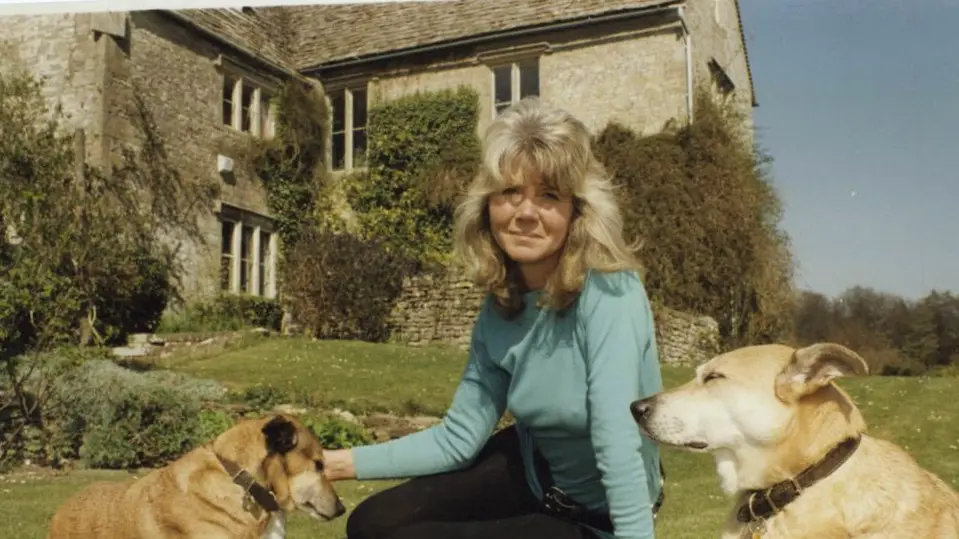
Finding Her Voice and Journalism
In 1956, when she was 19 years old, Jilly Cooper started working as a cub reporter for the Middlesex Independent. She wrote about small-town football games, parties, and other social events that taught her how British people live their lives.
She had a rough start to her career, getting fired from more than 20 jobs in publishing and public relations. She later joked that she was “too busy daydreaming to be employable.” But these failures made her stronger and better at reading people, which would help her throughout her career.
In 1969, The Sunday Times Magazine published her honest essay about being a “undomesticated housewife.” The column became an instant hit, and she wrote it for 13 years, full of cheeky humour, domestic chaos, and sharp observations about class and marriage.
Later, she went to The Mail on Sunday, where she wrote her weekly column until the late 1980s. Her writing style—casual, smart, and personal—helped change the way women in postwar Britain wrote about their lives.
Marriage, Family, and Overcoming Hard Times
In 1961, Jilly married Leo Cooper, a publisher of military histories. Their love story began decades ago, when Jilly saw him as a boy in Ilkley “throw a strawberry jelly at a girl who was bragging about her father’s land.” She later said it was “the moment I fell in love.”
They got married after only two dates, and their marriage lasted more than 50 years.
Jilly was told she couldn’t have kids after having an ectopic pregnancy. She and Leo adopted Felix when she was 31, and then Emily three years later. She said that their adoption was “the best gift we ever got.”
But their marriage wasn’t always easy. In 1990, a six-year affair between Leo and another publisher came to light, putting their relationship to the test. But Jilly’s usual sense of humour and willingness to forgive won out. She and Leo got back together and stayed together until he died in 2013.
People talked about how strong she was. She survived the Ladbroke Grove train crash in 1999, which was one of the worst train accidents in British history. She crawled through a window to safety and then calmly called a taxi to The Ritz for a meeting. “I thought, well, I’m alive—might as well go to the meeting,” she told reporters later, laughing.
From Columnist to Storyteller-How a Novelist Came to Be
It was natural for Jilly to go from being a columnist to a novelist. Her first book, How to Stay Married (1969), put her funny thoughts into words. Then came How to Survive from Nine to Five (1970) and Men and Super Men (1972).
She was very interested in how gender and class interact. These ideas shaped her 1979 classic Class: A View from Middle England, which is a funny but very sharp look at Britain’s social hierarchy.
She wrote and co-created the BBC sitcom It’s Awfully Bad for Your Eyes, Darling in 1971. It starred Joanna Lumley and was about four glamorous women living in London.
But writing fiction was what she was really meant to do. She wrote a number of romances between 1975 and 1981, including Emily, Bella, Harriet, Imogen, Prudence, Octavia, and the short-story collection Lisa & Co. All of these books dealt with love, loss, and being a woman in a funny way.
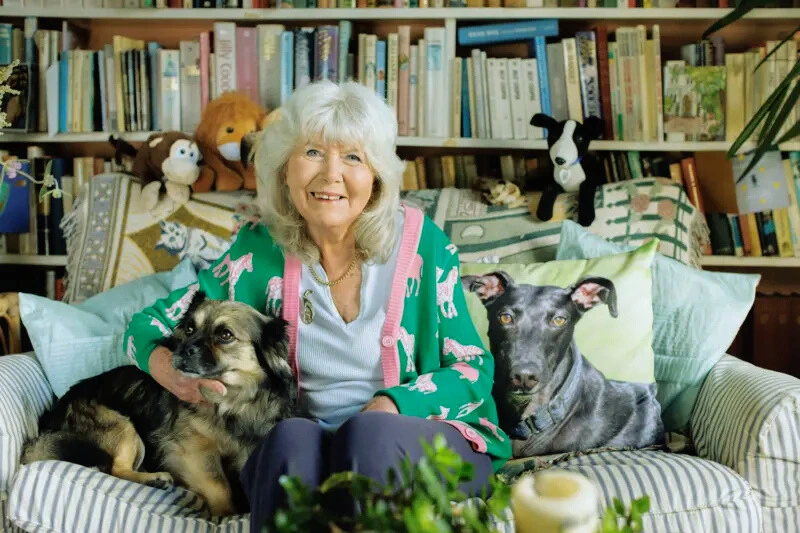
“Riders”-How a Classic Was Made
Cooper’s book Riders, which came out in 1985, made her famous.
She had been thinking about the idea for more than ten years. In 1970, she finished a first draft but lost it on a London bus, so she had to start over years later. “It was like losing a child,” she said later. “But it probably made the second version better.”
Riders burst onto the scene in literature. Set in the glamorous world of show-jumping, it introduced readers to Rupert Campbell-Black, a cocky, attractive anti-hero who represented the decadence and insecurity of Britain in the 1980s.
The book was unapologetically raunchy but also emotionally smart. Its mix of satire, sensuality, and class comedy changed the way people think about commercial fiction.
At first, critics called it “light entertainment,” but readers loved it. The Rutshire Chronicles had started.
The Age of Excess and the Rutshire Chronicles
After Riders came Rivals (1988), Polo (1991), The Man Who Made Husbands Jealous (1993), Appassionata (1996), Pandora (1998), and, many years later, Tackle! (2023) — each one adding to the vast Rutshire universe.
The series looked at themes of ambition, betrayal, sexuality, and morality in the context of Britain’s upper class. Her male main characters were often charming rogues, and her female main characters were flawed but very strong.
The Rutshire Chronicles were a huge hit, selling more than 11 million copies in the UK alone. Her books were bestsellers all over the world, were translated into many languages, and became a symbol of the decadence of Britain’s upper-middle class.
In 2024, Rivals came back to life as a Disney+ show with David Tennant, Danny Dyer, Katherine Parkinson, Bella Maclean, and Alex Hassell. Jilly herself was the executive producer.
Producers Dominic Treadwell-Collins and Alex Lamb fondly remembered “scribbling plotlines on scraps of paper across her sitting-room floor” and “getting scolded and laughed at in equal measure.”
Jilly even made a cameo in the show, which was a fitting tribute to a woman whose imagination had created a whole fictional world.
The Queen of the Bonk
Jilly Cooper didn’t just write romance; she changed it.
People called her books “bonkbusters,” which is a word used to describe best-selling novels that are full of sex, scandal, and social satire. But Cooper’s work was more than just titillation; it was funny, kind, and very aware of the hypocrisy of class and gender.
People often thought her heroines were less than they were, her heroes had flaws, and her humour was sharp. She once said that her work wasn’t sexual, but rather “low morals and high fences.”
In the 1980s, Spitting Image made her famous by making a puppet that only said “sex, sex, sex.” She thought it was funny. She said, “If people are laughing, they’re happy, and that’s all I want.”
At first, critics called her “lowbrow,” but later, academics saw her as a chronicler of British identity. In classes on post-Thatcher culture, feminist irony, and popular literature, universities taught her novels. This proved what readers had always known: Jilly Cooper was one of Britain’s best social observers.
READ MORE : Why Jilly Cooper’s Bonkbusters May Stand the Test of Time
Jilly Cooper and Queen Camilla are friends
Queen Camilla was Jilly’s most devoted fan out of all her fans. The two women had been friends for decades, and they bonded over their love of dogs, books, and humour.
Jilly went to a lot of royal events. For example, she went to The Queen’s Reading Room Festival at Chatsworth House in 2025, just a few weeks before she died.
After she died, Buckingham Palace released a rare personal statement signed “Camilla R” that said:
“Very few writers become legends while they are still alive, but Jilly was one of them. She created a whole new type of writing and made it her own over the course of more than fifty years. In real life, she was a great friend to me and many others who were funny and caring. I send my thoughts and prayers to all of her family with my husband The King. And may her future be full of impossibly good-looking men and loyal dogs.
The Queen’s tribute echoed the feelings of millions: admiration mixed with personal love.
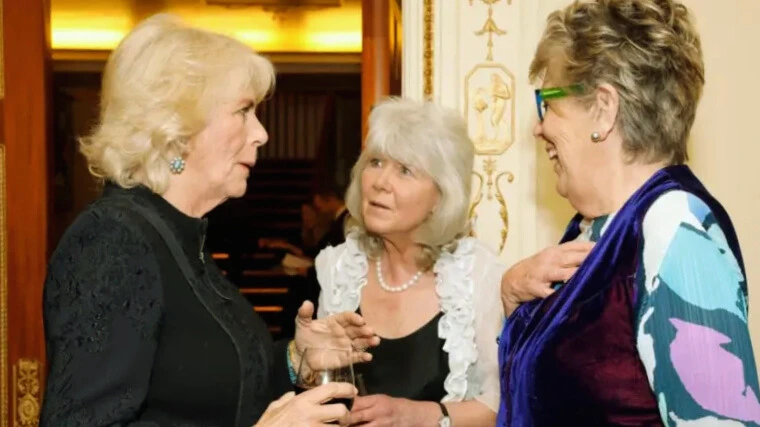
Awards, Praise, and a Lasting Effect
In 2004, Jilly Cooper was given an OBE for her work in literature and charity. King Charles III made her a Dame Commander of the British Empire (DBE) at Windsor Castle twenty years later.
She said, “I can’t believe I’m a DBE—delighted, confused, and ecstatic.”
Bill Scott-Kerr, her publisher, called her “a true trailblazer” and said that Riders changed the course of British fiction. Felicity Blunt, Cooper’s agent, said that Cooper “defined culture, writing, and conversation for more than 50 years.”
Jilly released Tackle! when she was 87 years old. (2023): Going back to Rupert Campbell-Black, who is now in charge of a football team and is still as naughty as ever. Critics praised her for showing that age can never dull the imagination.
Death, Tributes, and National Grief
Dame Jilly Cooper, who was 88 years old, fell at her home in Gloucestershire on Sunday, October 5, 2025, and died. Her agency Curtis Brown confirmed the news on Monday, calling it “an unexpected shock.”
Felix and Emily, her children, made a statement:
- “Mum was the brightest star in all of our lives. She loved her family and friends more than anything else. We are so proud of everything she did, and we can’t imagine life without her happy smile and laugh.
People all over Britain paid their respects:
- Keir Starmer, the Prime Minister, called her “a literary force whose wit, warmth, and wisdom shaped British culture for more than 50 years.”
- Rishi Sunak, a former prime minister, said of her, “She was a storyteller whose wit and love of character brought joy to millions.”
- Joanna Lumley, who worked with her on a sitcom, called her “a darling friend and a brilliant person—hugely talented and wholly loveable.”
- Piers Morgan said she was “a fabulously fun, mischievous, warm-hearted lady.”
- Gyles Brandreth said she was “brilliant, beautiful, funny (so funny), sexy (so sexy!), the best company, and the kindest heart.”
- Kirstie Allsopp called her “a British institution.”
- “One of the greats,” Adam Kay said of her.
- “She was never happier than when she was with dogs and horses,” Clare Balding wrote with love.
There will be a private funeral for her, and then a public service of thanks at Southwark Cathedral in London. More information will be available later.
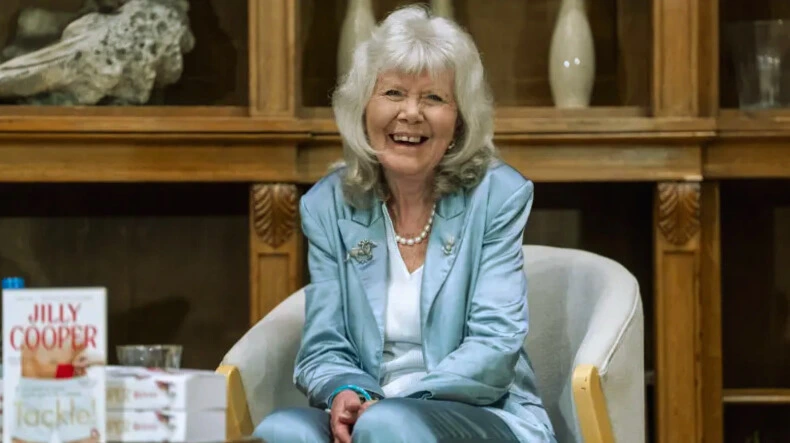
The Lasting Legacy of Jilly Cooper
Jilly Cooper was more than just a writer for more than sixty years. She became an institution. She changed what women could write and what readers could want by turning love, lust, and laughter into literary art.
Her books were about freedom, happiness, and being imperfect. Her heroines weren’t looking for perfection; they were looking for happiness. Her men were not role models; they were mirrors of Britain’s beauty, pride, and weakness.
She understood society like Austen, made fun of it like Waugh, and loved it like Dickens. Her writing made the ordinary seem extraordinary.
According to journalist Zoe Williams:
- “She was a great storyteller who couldn’t be put in a box because she made her own.”
And Felicity Blunt, her agent, put it best:
- “She wrote to make people happier in general.” She was unbeatable in that way.
FAQ’S
Who was Leo Cooper’s first wife?
Jane Rumbold (née Mallinson) was Leo Cooper’s first wife.
Did Jilly Cooper adopt her kids?
Yes. Jilly Cooper and her husband Leo adopted two kids, Felix and Emily.
What order should I read Jilly Cooper’s books in?
The best way to read the Rutshire Chronicles is like this:
Riders (1985)
Rivals (1988)
Polo (1991)
The Man Who Made Husbands Jealous (1993)
Appassionata (1996)
Score! (1999)
Pandora (2002)
Wicked! (2006)
Jump! (2010)
Mount! (2016)
Tackle! (2023)
What is the real name of Jilly Cooper?
Her full name before she got married was Jilly Sallitt Cooper.
READ MORE : Famous Footwear-America’s Ascent and Australia’s Departure
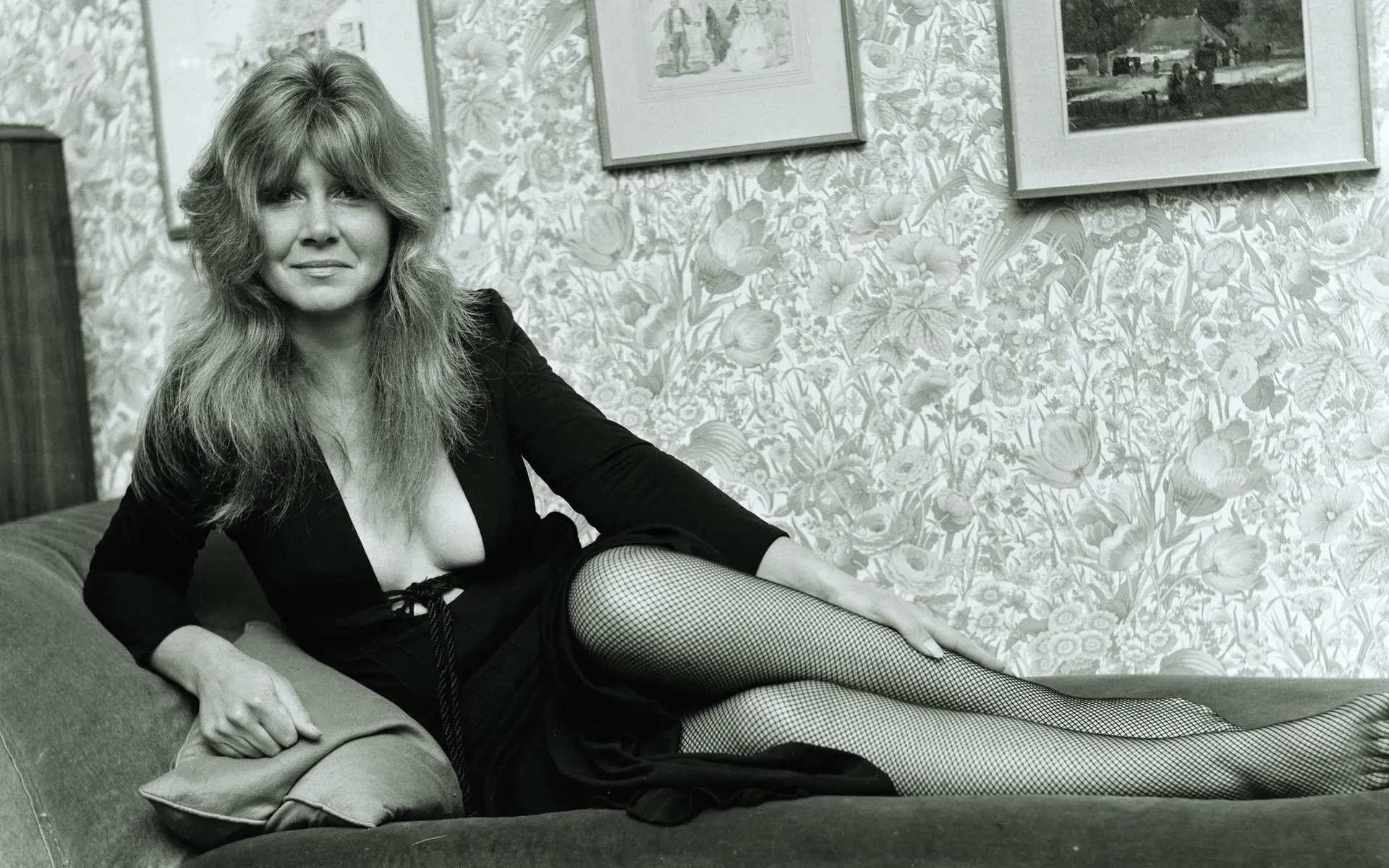



Leave a Reply